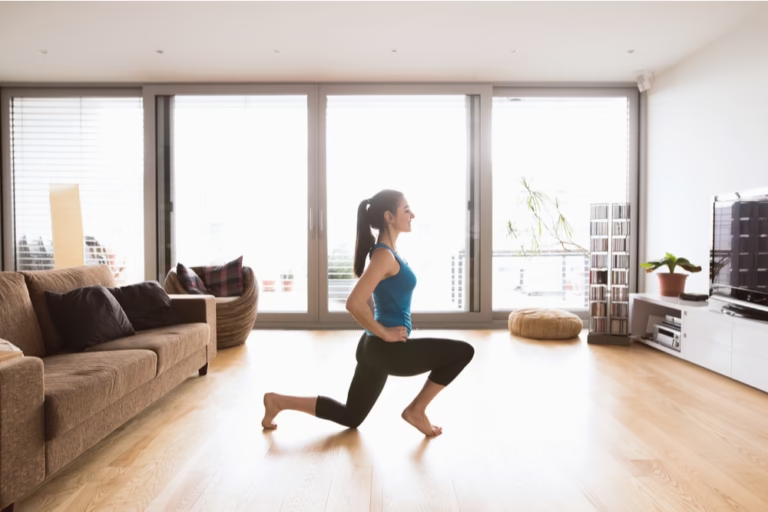We are dedicated to providing exceptional service to our customers by understanding their needs and providing customized solutions that meet their expectations. We also take care to select and deliver high-quality products that are carefully designed to suit their physical condition and ensure their comfort and safety.
Feeling stressed, anxious, or stuck in a rut? You might not need to look further than your sneakers. Discover how even a short workout can unlock a brighter, healthier mind and improve your overall quality of life.
Did you know that breaking a sweat does more than just improve your physique? Physical exercise is one of the most effective and natural ways to boost mental well-being. From reducing stress to enhancing your mood, the mind-body connection is undeniable. In this article, we’ll explore how regular physical activity can uplift your mental health and provide actionable solutions to get started.

How Exercise Improves Mental Health
1. Reduces Stress Levels
Exercise helps lower cortisol levels, the hormone associated with stress. Activities like running, yoga, or strength training stimulate the production of endorphins, which act as natural stress relievers. These hormones not only reduce tension but also create a sense of calm and relaxation.
Why it works: Engaging in physical activity diverts your mind from daily worries. It’s like hitting the reset button on your stress levels.
2. Enhances Mood
Regular physical activity increases the production of serotonin and dopamine, two neurotransmitters that play a key role in happiness. This is why a good workout often leaves you feeling energized and uplifted.
Tip: Incorporate 30 minutes of moderate exercise into your daily routine to consistently elevate your mood.
3. Improves Sleep Quality
Struggling with insomnia or restless nights? Exercise can help. Physical activity not only tires out your body but also regulates your circadian rhythm, the internal clock that governs sleep-wake cycles.
Best practices: Avoid intense workouts close to bedtime. Opt for morning or afternoon sessions to optimize your sleep quality.
4. Builds Resilience Against Anxiety
Aerobic exercises like jogging or cycling are particularly effective at reducing symptoms of anxiety. These activities help regulate your breathing and increase mindfulness, which can break the cycle of overthinking and worry.
Pro tip: Pair exercise with breathing techniques to enhance its anxiety-reducing effects.
5. Sharpens Cognitive Function
Physical activity boosts blood flow to the brain, improving memory, concentration, and decision-making skills. Studies show that regular exercise can even slow cognitive decline in older adults.
Try this: Activities that require coordination, like dancing or playing sports, are especially beneficial for brain health.
6. Alleviates Symptoms of Depression
Exercise is a powerful tool in combating depression. It’s often recommended alongside therapy and medication as a holistic approach to treatment. The act of moving your body releases chemicals that counteract feelings of sadness and hopelessness.
Actionable step: Start small with walks or gentle yoga, gradually increasing intensity as your confidence builds.
7. Boosts Self-Esteem
Achieving fitness goals, no matter how small, can greatly enhance your self-worth. Exercise provides a sense of accomplishment and helps you feel more in control of your body and mind.
Example: Setting achievable milestones like walking 5,000 steps daily can provide a steady boost to your self-esteem.
8. Promotes Social Connections
Group activities, such as fitness classes or team sports, foster social interaction. This sense of community can reduce feelings of loneliness and provide emotional support.
What to try: Join a local sports league or attend group fitness sessions to connect with like-minded individuals.
9. Reduces Chronic Pain
Conditions like back pain or arthritis can take a toll on your mental health. Regular exercise strengthens muscles and improves flexibility, which helps manage chronic pain and reduces associated stress and anxiety.
Recommended exercises: Swimming, Pilates, or low-impact stretching are excellent for pain management.
10. Cultivates Mindfulness
Exercise often requires focus on the present moment—whether it’s maintaining balance in yoga, counting reps in strength training, or synchronizing your breathing with your strides during a run. This mindfulness helps you detach from negative thought patterns and stay grounded.
Idea: Combine your workout with nature, such as hiking or jogging in a park, to double the mindfulness benefits.
How to Get Started
- Set Realistic Goals: Start with manageable activities like walking or light yoga.
- Schedule Your Workouts: Treat exercise as an essential appointment you can’t miss.
- Find Activities You Enjoy: Whether it’s dancing, swimming, or cycling, choose something that makes you happy.
- Stay Consistent: Aim for at least 150 minutes of moderate exercise weekly, as recommended by health experts.
- Seek Support: Consider working with a trainer or joining a fitness community to stay motivated.
So The link between physical exercise and mental well-being is undeniable. By incorporating regular activity into your life, you’re not just investing in your physical health but also fortifying your mental resilience, happiness, and clarity. Ready to feel your best, inside and out? Start your fitness journey today and unlock the incredible mental benefits that await.
Some product that can Help you









